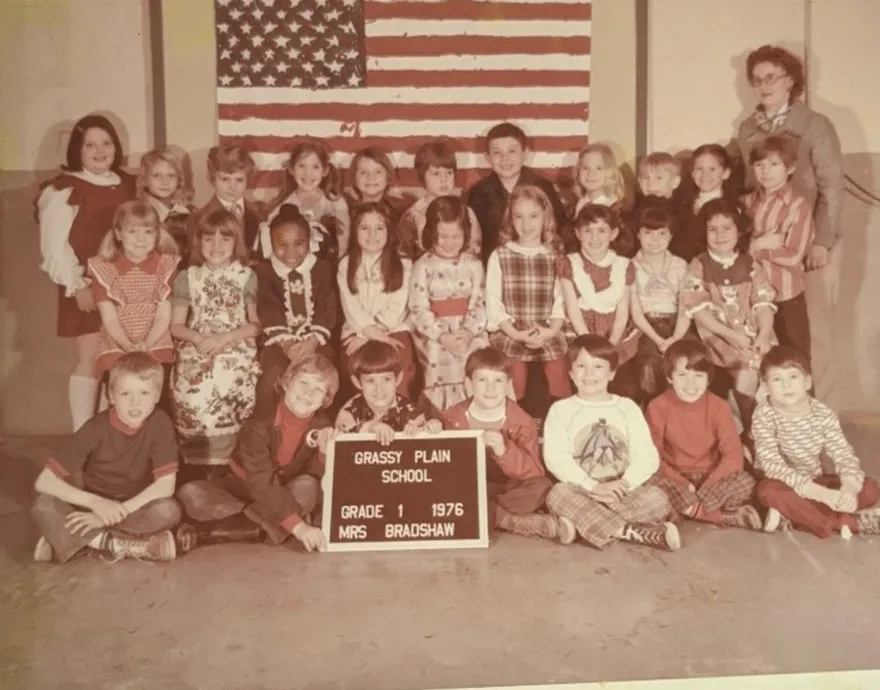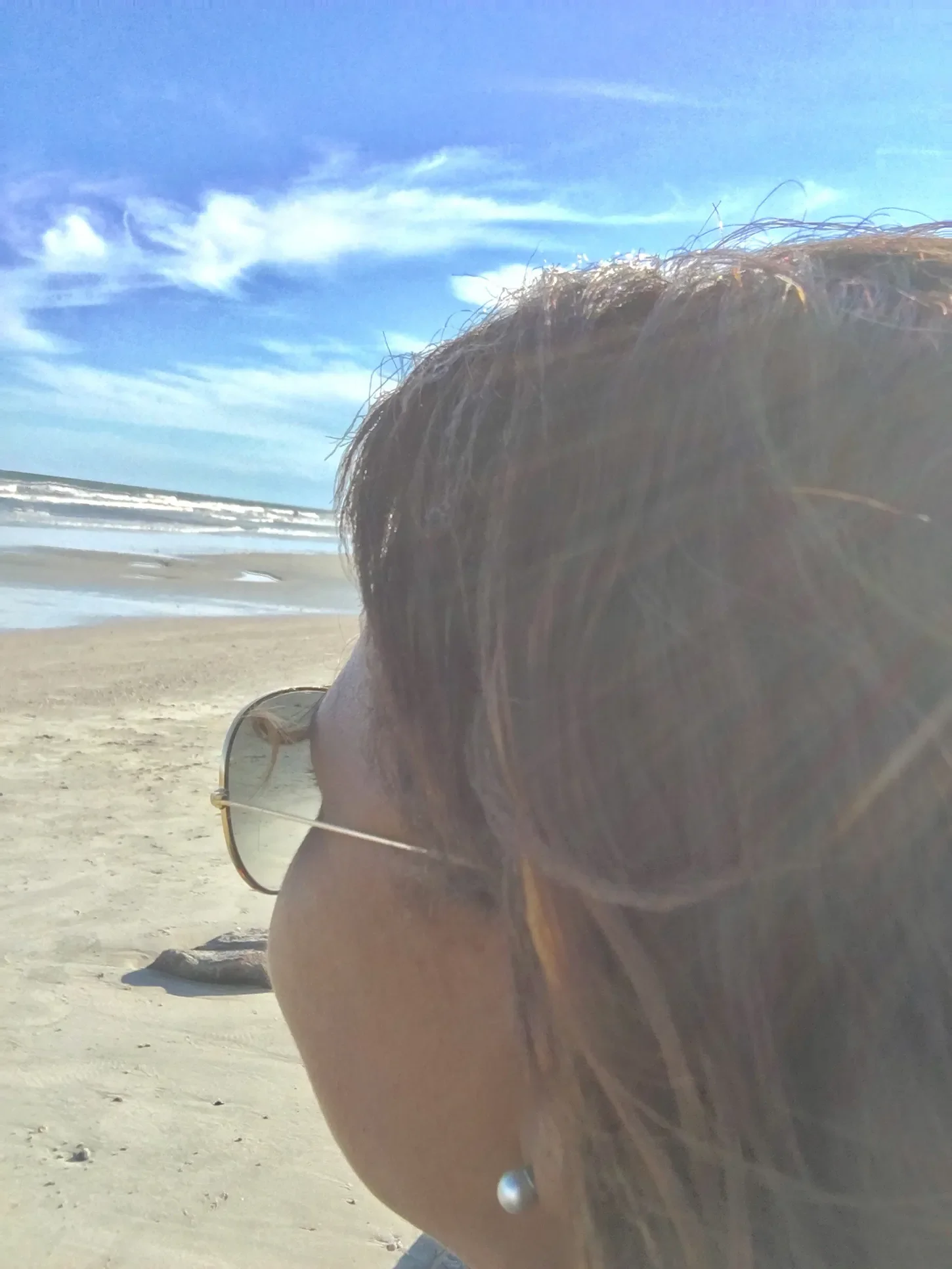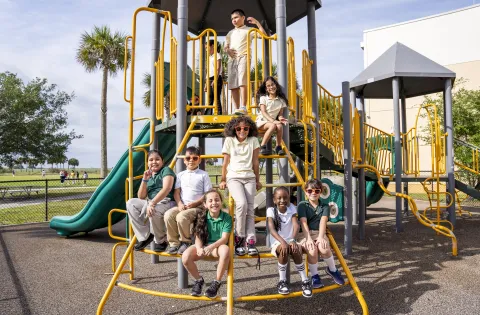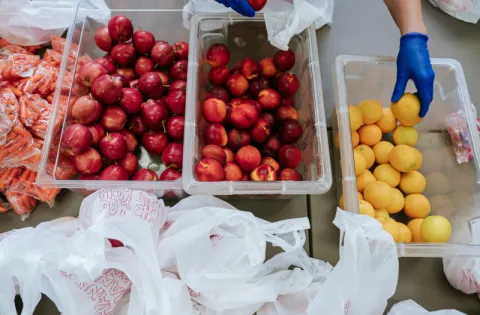As part of our celebration of Black History Month, we’re sharing stories from some of the No Kid Hungry campaign’s Black staff members about their own experiences with childhood hunger and why the work of feeding kids matters to them. Today’s blog post is by Pamela Taylor, SVP & Chief Communications & Marketing Officer at No Kid Hungry's parent organization, Share Our Strength.
I started elementary school in a small, quaint, very New England town – Bethel, CT. The town was a fun, idyllic, healthy place to live, learn and thrive.

In my school, there were four black people – me, my brother, Kevin, my friend, Buffy, and one black teacher, Ms. Roundtree. Every February, we would observe Black History Month, and it was consistent. Once a week, there would be a different lesson - slavery, the Civil Rights Movement, a famous Black person, and the last week of the month the Black History Month program.
In that month, I tried to represent the courage, knowledge, and resilience of the Black heroes, scientists, activists, poets, philosophers, educators, trail-blazers the class would learn about each week. It’s hard to be all of Black history when there aren’t many people around you that look like you and be in community with you – there was a force pulling me to be all things Black and not get absorbed by everything White.
We later moved from Bethel to Charlotte, NC. My family lived in a predominantly white community with cookie-cutter style Colonial brick houses, perfectly manicured lawns, and a country club.
Our newly constructed subdivision, aptly named, Williamsburg, was fun a place to live, with all of the families moving there around the same time from different states. The kids played together, flashlight tag or kick-the-can every evening of the humid, summer nights.
Charlotte is where I spent my junior high and high school years. The Charlotte-Mecklenburg school system was integrated by busing (Swann vs. Charlotte-Mecklenburg Board of Education) and it was the first time I went to a school with a 40% black student population.
It was at school where I would hang with my Black friends. All the Black kids seemed to know each other, in fact, most had known one another since birth.
Their communities were generational, filled with families many of whom were related, and lived on the same street or within adjacent blocks their entire life.
Their neighborhoods were tight and congenial – the closeness of generations, kids were cousins, there were big Sunday dinner gatherings after church, and a familiarity with one another where you didn’t knock on your neighbor’s front door and wait to be greeted, you did the knock-walk – when you knock and open in the door in one fluid move and yell out, “hey yawl”!
My friends didn’t get all hyped about Black History Month because they lived all Black, every day. There is beauty and pride in the Black culture and heritage, not relegated to one month. I yearned to hold to it with energy and vigor I wanted to last all year long.

With all of the pride, culture, and community-connection of my friend’s neighborhoods, there was also a silent wind pushing on their face – more month than money. The force was like the undertow of the ocean pulling people away from stability, and no matter how hard their families worked to get on solid ground, they were just fighting not to drown.
Most of my Black friends got to school early so they could eat breakfast. When we filed into the cafeteria rambunctious and hungry for lunch, I’d plop down at a table with my metal, cartoon-adorned lunchbox, and many of my friends would go to the “other” lunch line to get their food.
It was years later when I actually learned the free and reduced lunch line was different from the “regular” lunch line. There was an undertow, you couldn’t see it or touch it, but the invisible force was continuously working against them.
After I graduated high school, I went to Hampton University, a historically Black college in Virginia, with students from all corners of the globe. Now I was fully entrenched in a community where we didn’t need to celebrate Black History Month, while we acknowledged and observed it, we celebrated everything Black, every day.
There was no busing, no cookie-cutter communities, just a bunch of Black students gathering the knowledge, skills, and confidence needed to fight the undertow.
I meandered through some early career options and luckily fell into the world of marketing and communications for public health initiatives. About 10 years ago, I started working on food insecurity, food access, and diet-related diseases.
I quickly realized my life exposures were coming together with my professional world. I don’t want any child to have to come to school early for breakfast, or go to a “different” line to get their lunch, or have families to try figure out how to make their money last as long as the month. I want kids to run off the calories of a healthy meal every night playing flashlight tag or kick-the-can.
At Share Our Strength we are working to end hunger and help people stand on solid ground. One day, when we’ve achieved our goal, I want to sit on the beach with the force of the wind at my back, propelling me forward to something new and not worrying about anyone having to fight the undertow.


